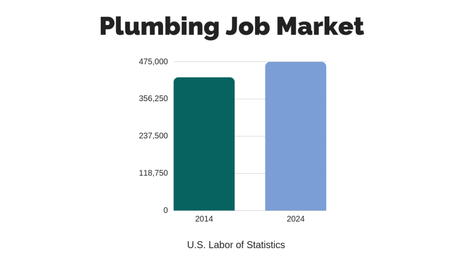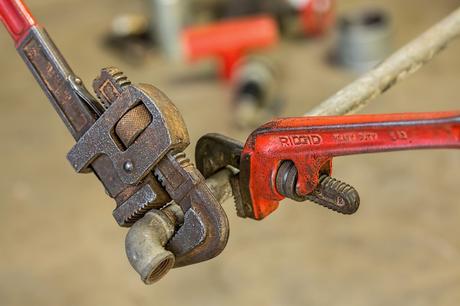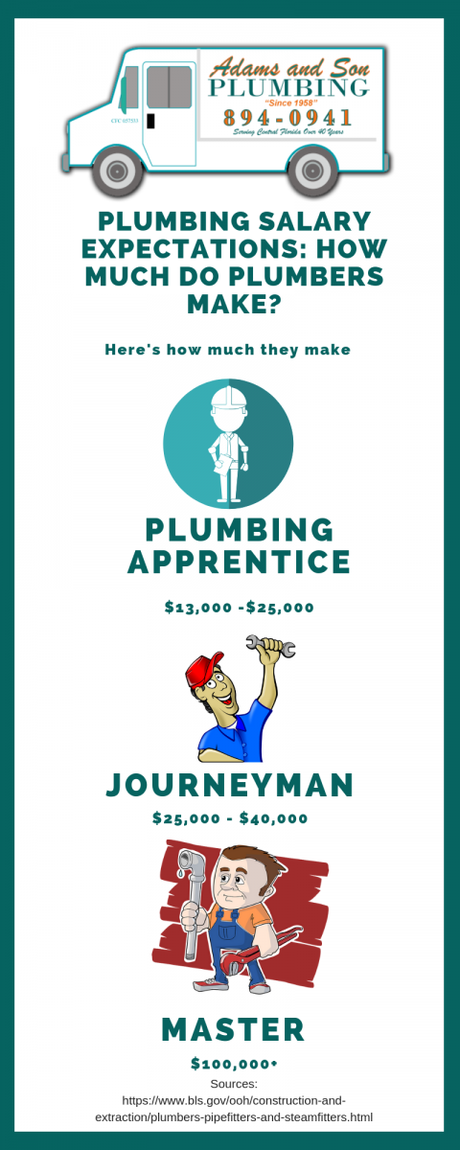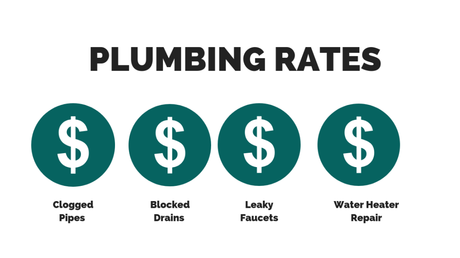Introduction:
Plumbing is in high demand and is requiring with the expanding house market this subcontracting industry will be in just as in need or more. It’s been a family owned business that began over 50 years for my family and with over three generations of plumbing. I’m hoping to continue Adams and Sons Plumbing for further more generations. If you have any doubt on why you should be a plumber, plumbing apprenticeships, or even common plumbing rates then read more to learn everything on how to be a plumber.
Why you should be a plumber?
When dealing with plumbing issues in the home, it’s important to hire a skilled plumbing professional rather than attempting to tackle the issue yourself with YouTube videos and phone calls to Dad. However, it is becoming increasingly difficult to find a professional plumber due to the retirement of Baby Boomers and the perception problems the industry faces.
In an interview with Newsweek on the topic, Ed Schoen, owner of Prestige Heating Service Inc. in Long Island, has found it difficult to rebuild his business back to pre-superstorm Sandy operations, but would like to grow his company from his two trucks and employees. “I could expand more if there were more people interested in learning the trade,” said Schoen.
Schoen is not the only one finding it difficult to fill critical positions within his business, and plumbing is not alone, the entire skilled labor industry is having trouble filling jobs.
“There are simply not enough skilled workers available in the labor market,” said Troy W. Maschmeyer, Jr., president and CEO, Maschmeyer Concrete in Lake Park, Florida. “Demand is rising, but many older workers have retired or left the trades during the recession. This is a major challenge for contractors and their customers.”

The plumbing industry has long-term stability to offer with the demand for skilled workers on the rise in an evolving job market. The U.S. Bureau of Labor Statistics states that there were 425,000 jobs in plumbing and plumbing related fields in 2014 with an estimated increase of 49,100 jobs (12%) by 2024.
On The Plus Side: Robot Plumbers Are Far Away

This job security and the fact that the median annual wage is $95,010 make the plumbing industry a good option for those who might be looking for a new career.
On the national level, the Plumbing-Heating-Cooling Contractors National Association (PHCC) and the PHCC Educational Foundation have sought to combat young adults’ perceptions of the plumbing profession through classroom programs, videos, and hands-on learning experiences.
Despite the challenges the plumbing industry is facing there are plenty of opportunities for it to expand. If you’re interested in pursuing this type of career check out these plumbing resources.
How to Start a Plumbing Career

You’re at a loss. You’re either stuck in a job you hate, or trying to find a career that works for you. While it may be unlikely, have you considered a plumbing career? It may be the job you’re looking for, and there is a dire need for more plumbers in the United States. So before you rule it out, check out this information on starting a plumbing career.
Why Should You Start a Plumbing Career?
It may seem like a long shot, but getting into the plumber industry is not as difficult as you might think. Most states require a high school diploma and you to be 18… and that’s it. At that point, anyone can begin plumbing courses and look for a job as a Plumber’s Helper, or Plumbers’ Apprentice. It’ll take time, and you will have to work your way up, but it is ideal for someone who isn’t interested in the life of an academic, and learns well with hands on material.
Types of Plumbing Jobs: What Kind of Jobs Do Plumbers Do?
So what do plumbers do? You may not realize, but plumbers do more than just unclogging toilets. Everything from digging ditches to designing new pipe layouts for lots, being a plumber actually offers a lot of variety in your day-to-day activities. That means you have to be versatile. You don’t get to choose that you only want to work on one thing, especially when you are starting out. You’ll have to meet with new people, sell your services, be in good physical shape, and be able to crunch numbers and weigh decisions in the moment.
As you gain experience, you may realize that there are actually different plumbing jobs. You may be happy as a standard Plumber. This means that you’ll be working residential or commercial, usually with lighter pipes to handle small volumes of liquid. However, if you decide to take up a role as a Pipefitter, then you’ll mostly be working on large-scale commercial projects, that require heavier pipes to handle large volume. These larger scale jobs benefit from higher pay, and from typically having the materials delivered to the site. Finally, a Steamfitter will be similar to a Pipefitter, but will also involve setting up pipes to transport gases.
Plumbing Salary Expectations: How much do Plumbers Make?
Still here? Good. Because now here’s the part everyone has been waiting for; how much do plumbers make?
There are three levels to being a plumber, and so, there are three salary levels.

The Plumber Apprentice salary can be anywhere from $13,000 to $25,000. You’ll work side-by-side with a Master as you are learning the trade. It doesn’t seem like a lot, but a lot of that comes from taking up the master’s time and experience. You’ll essentially be receiving a free education, and so the payment is a supplement.
After 4 to 5 years, when you are able to graduate to a Journeyman, you’ll be able to start taking jobs on your own. That means a larger paycheck. Pay generally starts somewhere from $25,000 to $40,000 a year, but you’ll be earning the average yearly salary of a plumber of your state.
If you work hard, and have the drive, you can eventually earn the rank of Master. This means you are recognized by the state, can own your own business, and employ other plumbers. This salary can vary greatly, but it is possible to earn well over $100,000 a year.
This may have you thinking, “Where are the plumbing jobs near me?” But wait one minute, because you can’t just jump in.
Common Plumbing Rates for everyday home issues:

- Clogged Pipes
There are many reasons for clogged pipes, such as environmental (tree roots) and foreign objects (baby wipes, feminine hygiene products, etc.). The most common type is toilet clogs. The average cost to repair can range from $152 to $202. - Blocked Drains
Blocked drains are caused by waste wateraccumulation – such as built-up grease and food, which is common in kitchen sink drains. They are the direct result of clogged pipes. A broken drain pipe could lead to a plumbing emergency, such as flooding and water damage. To repair a drain pipe could cost around $549, depending on the circumstances.
Most bathroom drain clogs result when dirt, skin flakes and hair binds to soap scum on the walls of drain pipes. Over time, this gunk accumulates and reduces water flow. Blocked drains are also a common problem for washing machines, and can cost anywhere from $120 to $500 to repair. All these problems could be reduced or avoided by waste monitoring, and refraining from flushing foreign objects. If neglected, drain problems could be highly costly and frustrating to deal with, not to mention the serious health risks they can cause.
- Leaky Faucets
another common plumbing problem is leaky faucets. If neglected, they can turn into a very costly repair averaging around $341. In addition, leaky faucets can waste thousands of gallons of water over time, and result in higher water bills. The repair may be relatively simple or require installing a new faucet. - Water Heater Repair
The water heater is one of the most important appliances in your home. Problems can include water leaks and low hot water pressure. The most common problem is issues with heating elements. What could be more frustrating than hopping in the shower and not finding any hot water? While some minor plumbing fixes can be done on your own, replacing a heating element – or the water heater itself – requires a plumber. National average to repair a traditional tank-style water heater is $460. This cost could depend on other factors, such as the type of water heater, and the possibility of needing additional repairs.
As you can see common everyday plumbing issues can add up that can lead you to a very profitable career;
Local Orlando Classes & Online Courses

There are a couple of ways to get into a plumbing career. The first being a plumbing school. This will give you a solid foundation of information before you leap into hands-on work, however, it can cost anywhere from $1,000 for online courses to $20,000 for a 2-year Associate’s degree. Florida Technical College offers a Plumbing Degree Program, so take a look if you are interested, or try ePlumbing Courses and learn from home.
Apprenticeships
If you would like to try an Apprenticeship, take a look at the Orange Technical College Plumbing Apprenticeship. It is a nationally recognized certificate program that will provide paid work and free classes. After completing the program, and passing the test, you will be recognized as a Journeyman and entitled to all of the benefits that includes. The perfect place to start your new plumbing career.

